Sergiy Demediuk: Trust and international cooperation are the basis for effective counteraction to cyber threats
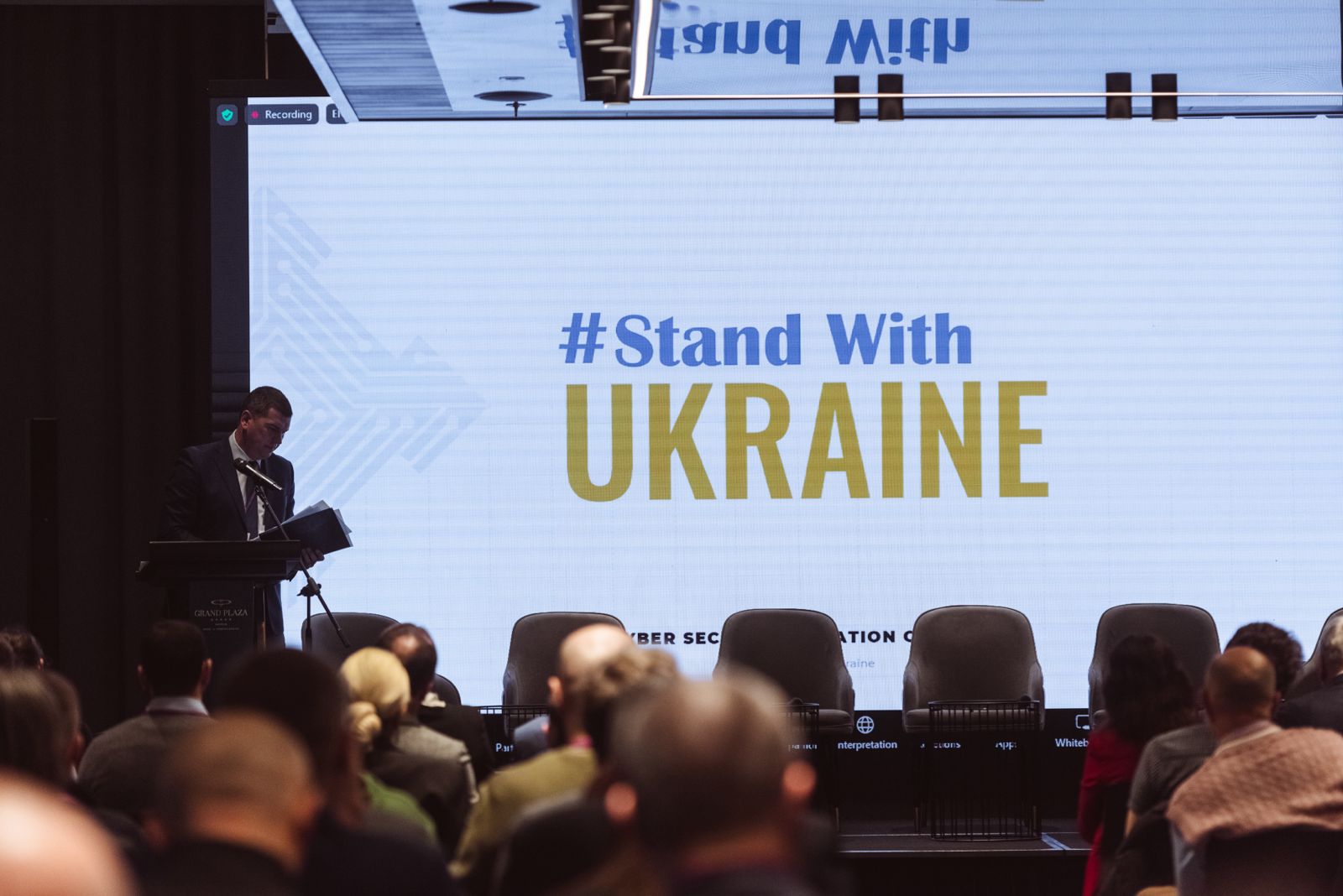 The National Coordination Center for Cybersecurity under the National Security and Defense Council of Ukraine, together with CRDF Global in Ukraine, with the support of the U.S. Department of State and in cooperation with the Slovenian Government Information Security Office (URSIV), held the fourth meeting of the International Cybersecurity Cluster in Ljubljana, Slovenia, entitled “Ukraine's Experience in Countering Russian Cyberwarfare: Lessons for Balkan Countries.” The event, which took place on November 28, brought together about 150 participants, including representatives of the public and private sectors, international organizations, diplomatic corps and civil society.
The National Coordination Center for Cybersecurity under the National Security and Defense Council of Ukraine, together with CRDF Global in Ukraine, with the support of the U.S. Department of State and in cooperation with the Slovenian Government Information Security Office (URSIV), held the fourth meeting of the International Cybersecurity Cluster in Ljubljana, Slovenia, entitled “Ukraine's Experience in Countering Russian Cyberwarfare: Lessons for Balkan Countries.” The event, which took place on November 28, brought together about 150 participants, including representatives of the public and private sectors, international organizations, diplomatic corps and civil society.
Opening the event, Deputy Secretary of the National Security and Defense Council of Ukraine Serhiy Demediuk emphasized that the hybrid war launched by the Russian Federation has been going on since 2012, and cyberspace plays a key role in it.
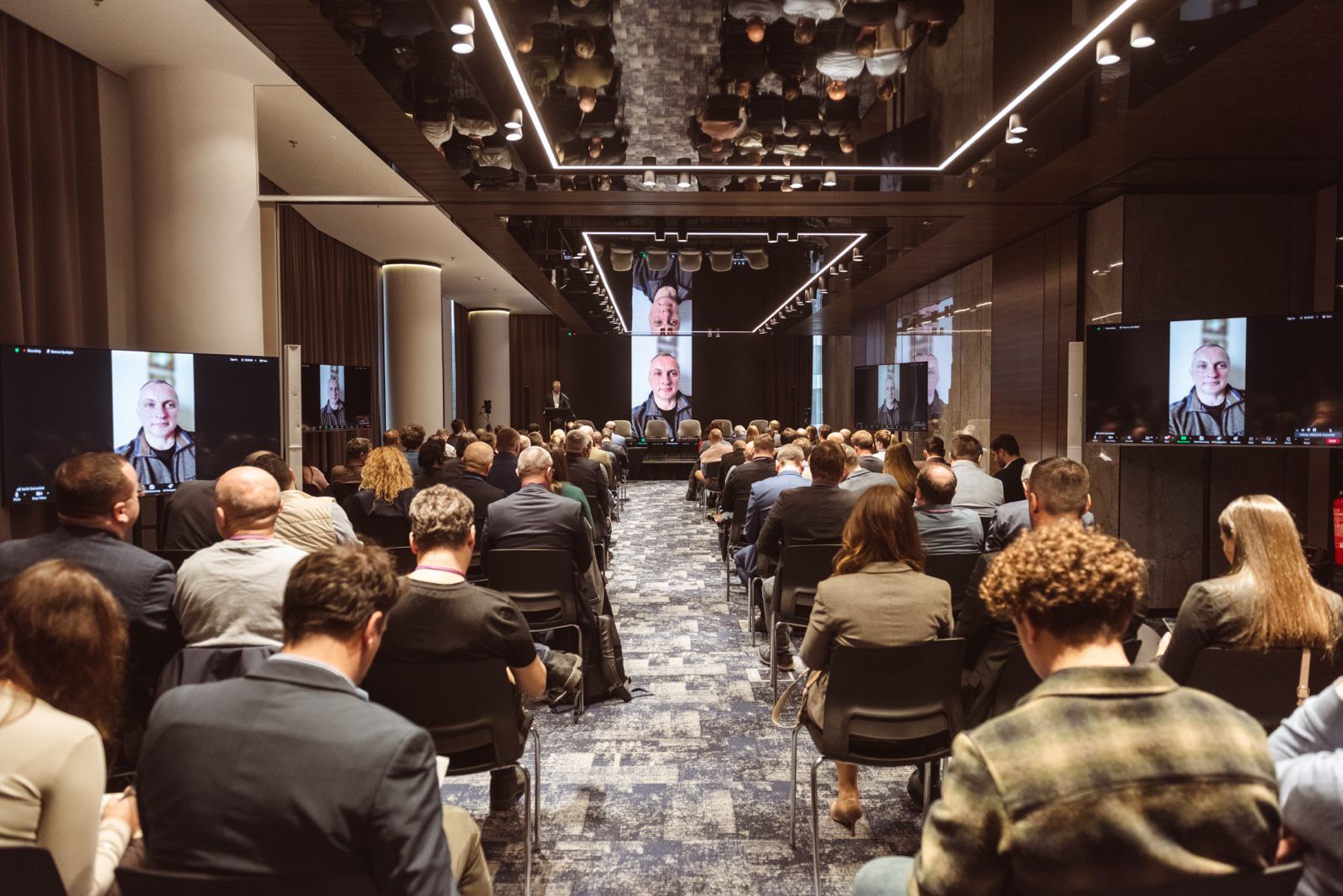 “Through cyberattacks and information influence, the aggressor carries out non-kinetic actions against democratic countries, disguising them as criminal activities. Attributing such attacks takes time and considerable effort, while information influence aimed at manipulating public opinion around the world remains one of the most serious global threats. Cybersecurity and information security are inextricably linked and require a holistic approach to effectively address such challenges. And the events held by the NCCC in Slovenia are an important step towards strengthening international trust and cooperation, as real-time interaction is the most effective way to counter cyber threats. It is through direct dialog and joint work that we lay the foundation for global cyber resilience,” said Serhii Demediuk.
“Through cyberattacks and information influence, the aggressor carries out non-kinetic actions against democratic countries, disguising them as criminal activities. Attributing such attacks takes time and considerable effort, while information influence aimed at manipulating public opinion around the world remains one of the most serious global threats. Cybersecurity and information security are inextricably linked and require a holistic approach to effectively address such challenges. And the events held by the NCCC in Slovenia are an important step towards strengthening international trust and cooperation, as real-time interaction is the most effective way to counter cyber threats. It is through direct dialog and joint work that we lay the foundation for global cyber resilience,” said Serhii Demediuk.
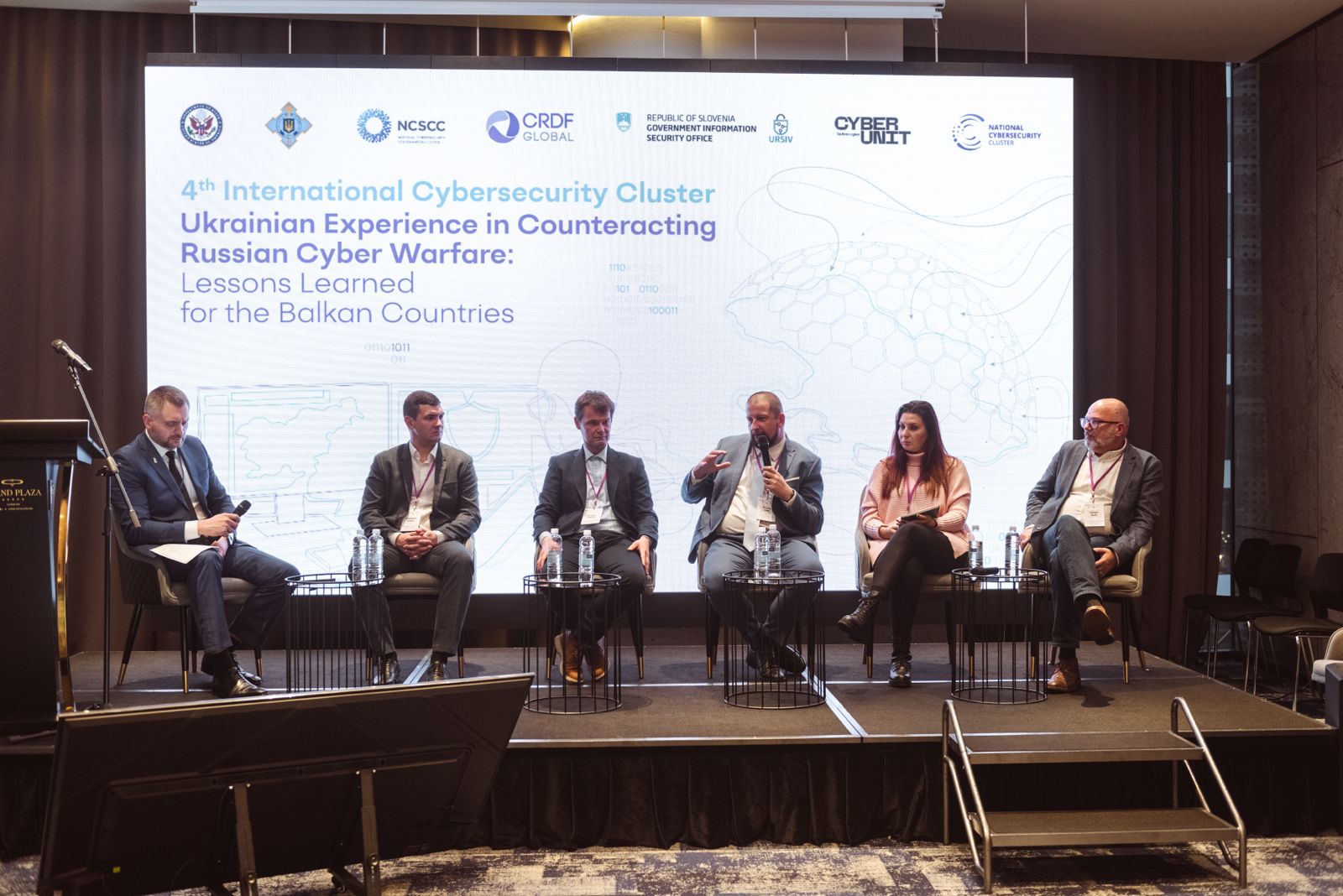 The International Cybersecurity Cluster in Slovenia once again emphasized Ukraine's leading role in cybersecurity and became a platform for strengthening international cooperation to counter global challenges.
The International Cybersecurity Cluster in Slovenia once again emphasized Ukraine's leading role in cybersecurity and became a platform for strengthening international cooperation to counter global challenges.
“Unfortunately, not only Ukraine has faced serious challenges in the field of cybersecurity. Europe in general, and Slovenia in particular, are increasingly becoming victims of Russian cyber aggression. Most recently, we have seen numerous cyberattacks by Russian hacker groups on Slovenian state information resources. Therefore, as the Ambassador of Ukraine to Slovenia, I am very pleased to observe real practical steps to strengthen cooperation in such an important area between our friendly countries,” said Ambassador Extraordinary and Plenipotentiary of Ukraine to the Republic of Slovenia Andrii Taran.
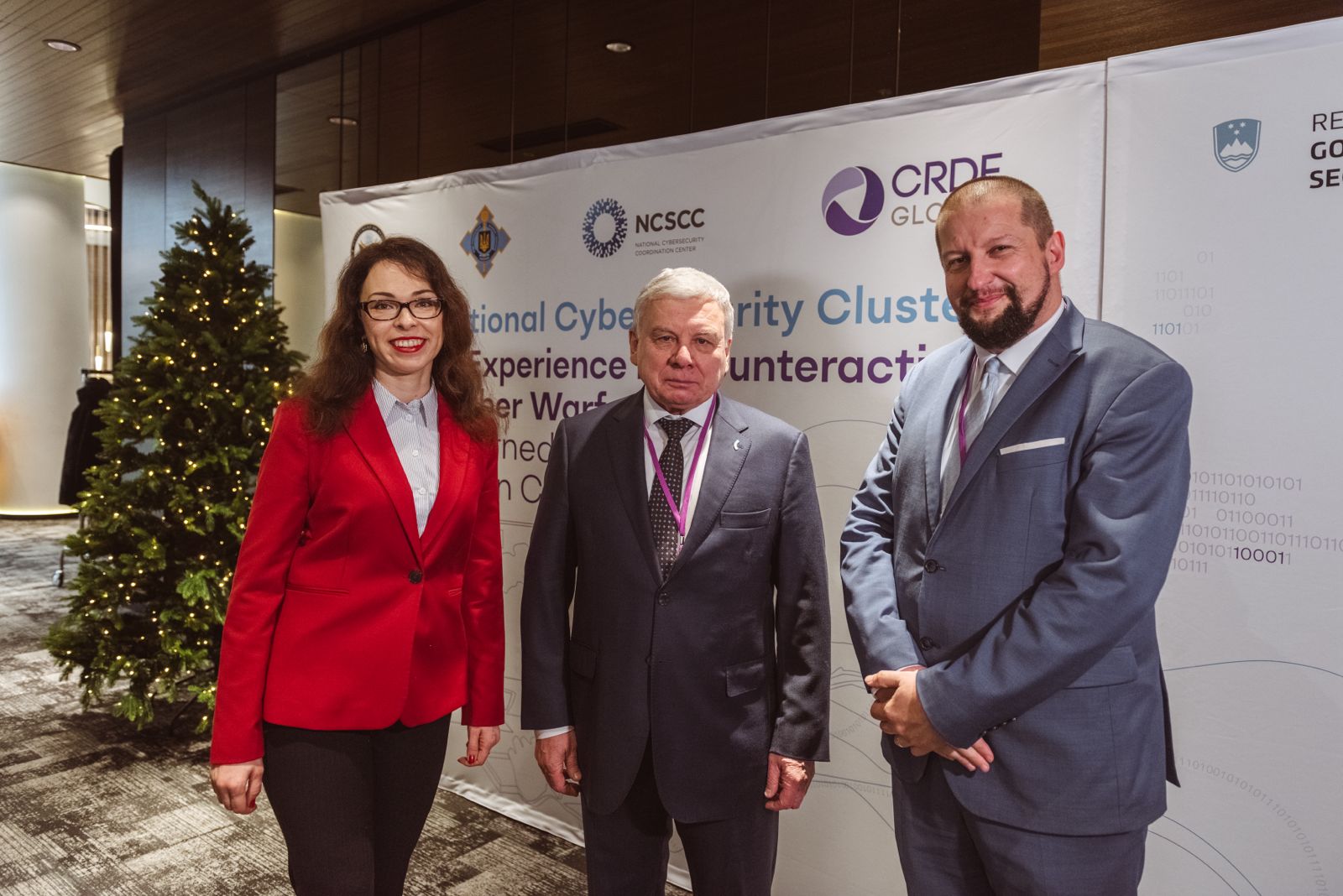 During the event, Natalia Tkachuk, Head of the Information and Cybersecurity Service of the National Security and Defense Council of Ukraine, Secretary of the NCCC, presented the main lessons learned by Ukraine in countering Russian cyber aggression. Representatives of the Security Service of Ukraine, the National Police of Ukraine, and the National Bank of Ukraine also shared their experience.
During the event, Natalia Tkachuk, Head of the Information and Cybersecurity Service of the National Security and Defense Council of Ukraine, Secretary of the NCCC, presented the main lessons learned by Ukraine in countering Russian cyber aggression. Representatives of the Security Service of Ukraine, the National Police of Ukraine, and the National Bank of Ukraine also shared their experience.
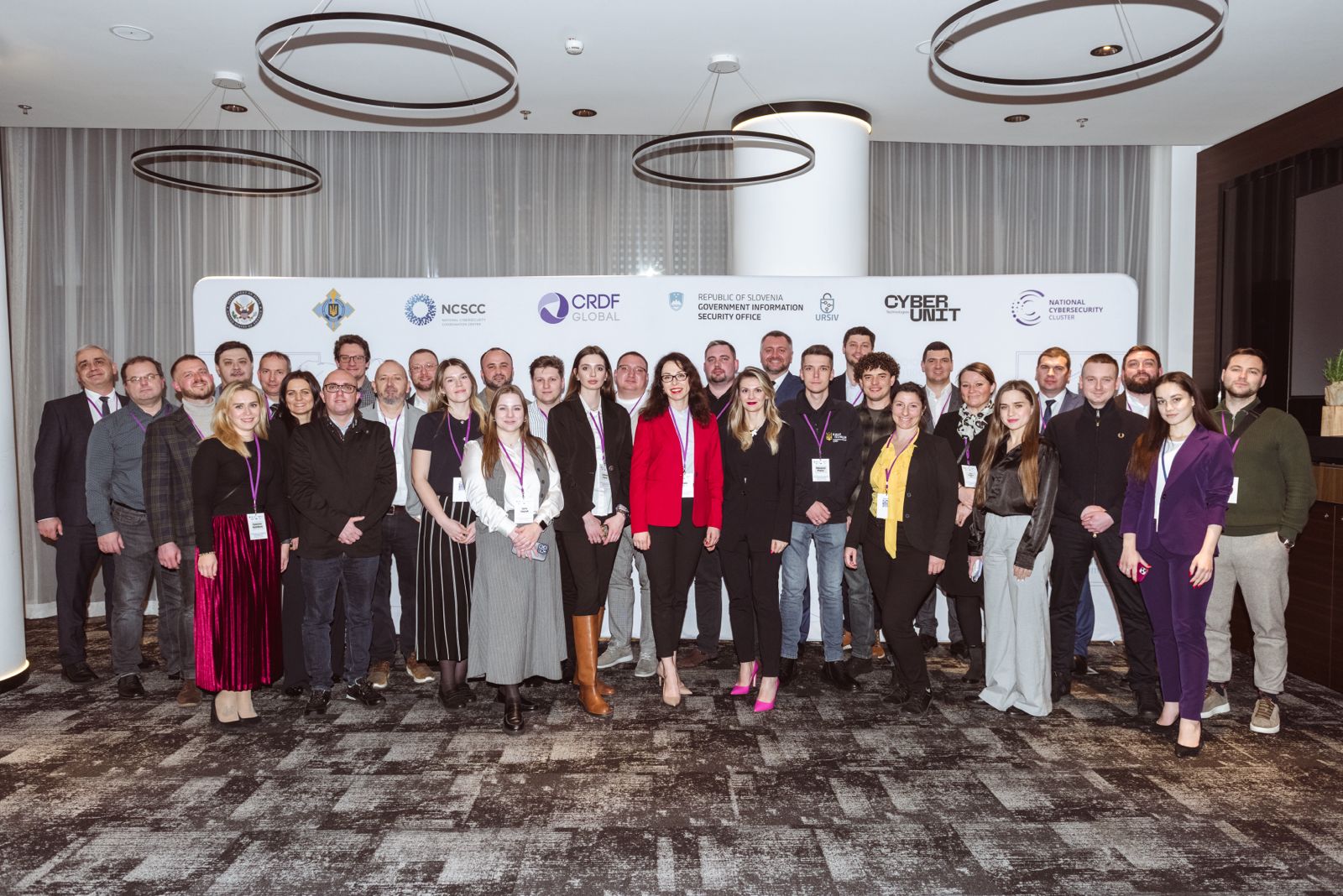 During the discussion panels, the participants discussed several topics. Among them:
During the discussion panels, the participants discussed several topics. Among them:
● Joint counteraction to threats from the east: cooperation between Ukraine and European countries
● practical steps to strengthen public-private partnerships in cybersecurity between Ukraine and the EU.
The key speakers included Uroš Svete, Director of the Government Information Security Office of Slovenia, Mykhailo Verić, Regional Director, CRDF Global Ukraine, Anna Sarri, Cybersecurity Specialist at the Capacity Building Unit of the European Union Agency for Cybersecurity (ENISA), and Gorazd Božić, Head of the National CSIRT of Slovenia. Representatives of the Ministry of Internal Affairs of Ukraine, the National Academy of the Security Service of Ukraine, the University of Maribor, and leading cyber companies and organizations also joined the discussion: CyberLab, the Foundation for Women's Leadership and Strategic Initiatives, the Institute for Cyber Warfare Studies, Cyber Unit Technologies, Cyber Resilience Kontron D.O.O., and Viris.